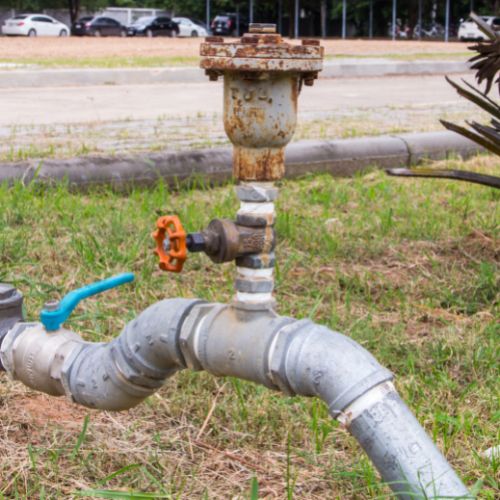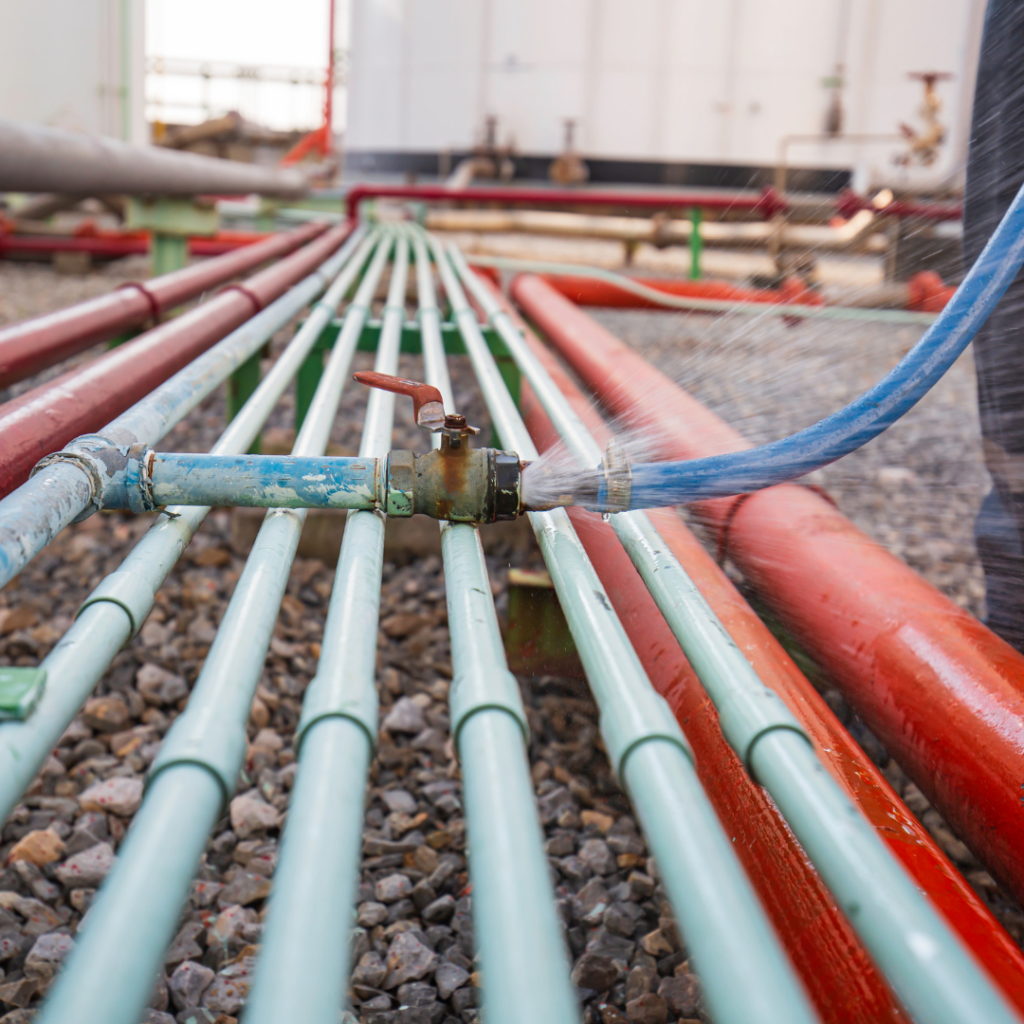In the quest for a healthy home environment, we often focus on aspects like clean air and proper ventilation. However, one crucial yet often overlooked factor in maintaining indoor air quality is the plumbing system. From the kitchen sink to the bathroom shower, every aspect of plumbing plays a role in the air we breathe indoors. In this guide, we’ll explore essential tips for ensuring that your plumbing contributes positively to your home’s air quality. Whether you’re dealing with issues like mold growth, sewer gas odors, or moisture buildup, understanding how your plumbing impacts air quality is key to creating a healthier living space. Join us as we delve into practical advice and expert insights on how to tackle common plumbing-related air quality issues and promote a cleaner, fresher indoor environment for you and your loved ones. Let’s dive in and discover the secrets to breathing easier through proper plumbing maintenance.
Plumbing and Indoor Air Quality: Understanding the Link and Tips for Maintenance
The relationship between plumbing and indoor air quality may not be immediately obvious, but it’s essential to recognize how the two are interconnected. Leaks in your plumbing system can lead to moisture buildup, which creates an ideal environment for mold and mildew growth. These microbial contaminants can release spores and volatile organic compounds (VOCs) into the air, contributing to poor indoor air quality and potential health issues for occupants.

- Regular Inspection: Schedule routine inspections of your plumbing system to check for any signs of leaks, corrosion, or damage. Pay close attention to areas prone to moisture buildup, such as under sinks, around toilets, and near appliances like water heaters and washing machines.
- Prompt Repairs: If you notice any leaks or plumbing issues during your inspections, don’t delay in addressing them. Prompt repairs can prevent further damage and minimize the risk of mold growth and water damage, ultimately preserving indoor air quality.
- Maintain Proper Ventilation: Proper ventilation is essential for removing moisture and preventing the buildup of indoor air pollutants. Ensure that bathrooms, kitchens, and other areas with high humidity levels are adequately ventilated to minimize condensation and mold growth.
- Use Non-Toxic Materials: When upgrading or repairing your plumbing system, opt for non-toxic materials that won’t introduce harmful substances into your water supply. Consider alternatives to traditional PVC pipes, such as PEX or copper, which are less likely to leach chemicals into the water.
- Install Water Filtration Systems: Investing in a water filtration system can help remove impurities and contaminants from your water supply, improving both the quality of your drinking water and the air in your home. Look for filtration systems that are certified to remove common pollutants and VOCs.
How Plumbing Upgrades Can Enhance Indoor Air Quality
In the quest for a healthier home environment, many homeowners overlook the significant role that plumbing plays in indoor air quality. While we often associate air quality with factors like ventilation and air purification, the condition of our plumbing systems can have a profound impact on the air we breathe indoors. By understanding how plumbing upgrades can enhance indoor air quality, you can take proactive steps to create a fresher, healthier living space for you and your family.

Addressing Leaks and Drips
One of the most common plumbing issues that can compromise indoor air quality is leaks. Whether it’s a dripping faucet, a faulty pipe joint, or a slow leak under the sink, these issues can lead to moisture accumulation and mold growth. By upgrading to leak-resistant fixtures and promptly repairing any leaks, you can prevent moisture from infiltrating your home and maintain better air quality.
Installing Water Filtration Systems
The quality of your tap water can also impact indoor air quality, particularly if your water contains contaminants or impurities. Installing a water filtration system can help remove pollutants such as chlorine, lead, and sediment, ensuring that the water you use for drinking, cooking, and bathing is cleaner and healthier. This, in turn, can reduce the risk of airborne pollutants being released from water sources within your home.
Upgrading to High-Efficiency Fixtures
Older plumbing fixtures, such as toilets, showers, and faucets, may be less efficient and prone to water waste. By upgrading to high-efficiency fixtures that use less water without sacrificing performance, you can not only conserve water but also reduce the likelihood of mold and mildew growth due to excess moisture. Additionally, using less water can help lower humidity levels indoors, further improving air quality.
Enhancing Ventilation
Proper ventilation is essential for maintaining good indoor air quality by removing stale air and introducing fresh outdoor air. Upgrading your plumbing system to include features such as exhaust fans in bathrooms and kitchens can help remove excess moisture and odors, reducing the risk of mold and improving overall air circulation throughout your home.
Regular Maintenance and Inspections
Even with the latest plumbing upgrades, regular maintenance and inspections are crucial for ensuring continued performance and preventing potential issues that could affect indoor air quality. Schedule routine inspections with a qualified plumber to check for leaks, corrosion, and other issues that could compromise your plumbing system and air quality.
Tips for Improving Air Quality Through Plumbing Maintenance
Maintaining good indoor air quality is essential for a healthy home environment. While many people focus on common factors like ventilation and air purifiers, the role of plumbing maintenance in air quality often goes overlooked. However, issues like leaks, mold growth, and poor drainage can significantly impact the air you breathe. In this article, we’ll explore some effective tips for enhancing air quality through proper plumbing maintenance.
- Regular Inspections: Schedule routine inspections of your plumbing system to catch any potential issues early on. Look for signs of leaks, such as water stains, dampness, or musty odors. Pay special attention to areas prone to moisture buildup, such as under sinks, around toilets, and near appliances like water heaters and washing machines.
- Fix Leaks Promptly: Even minor leaks can lead to mold growth and water damage, both of which can compromise indoor air quality. Don’t ignore dripping faucets or small pipe leaks. Repair them promptly to prevent moisture from accumulating and mold from spreading. Consider hiring a professional plumber for complex repairs to ensure they’re done correctly.
- Maintain Proper Drainage: Clogged drains can result in stagnant water, which promotes mold and bacterial growth. Use drain guards to catch hair, food particles, and other debris that can cause blockages. Regularly clean drains using natural solutions like baking soda and vinegar or invest in enzymatic drain cleaners to break down organic matter without harsh chemicals.
- Ventilate Moisture-Prone Areas: Proper ventilation is crucial in areas with high humidity levels, such as bathrooms, kitchens, and basements. Install exhaust fans to remove excess moisture and prevent condensation on surfaces. Consider using a dehumidifier in particularly damp areas to maintain optimal humidity levels and inhibit mold growth.
- Insulate Pipes: Insulating exposed pipes can help prevent condensation and reduce the risk of freezing during cold weather. By keeping pipes properly insulated, you can minimize the potential for leaks and water damage, ultimately preserving indoor air quality.
Conclusion
EZI Plumbing, we understand the paramount importance of maintaining healthy indoor air quality through proper plumbing practices. With our commitment to excellence and expertise in the field, we provide invaluable tips and services to residents of Chain Valley Bay, NSW, and beyond. By addressing potential sources of contamination and implementing preventative measures, we ensure that homes and businesses maintain optimal air quality, promoting the well-being and comfort of our clients. Trust in EZI Plumbing for reliable solutions that safeguard your indoor environment and contribute to healthier living spaces. Contact us today at +61 448467788 to experience the difference our services can make.

